The pandemic has been good for cannabis sales. That’s as true for The Hollingsworth Cannabis Company (THC Co.) as it is for the industry as a whole, but not for the reasons you might think. Located in rural Shelton, 90 miles southwest of Seattle on the Olympic Peninsula, this family business holds the dubious distinction of being the state’s only black-owned pot farm.
Established in 2013 by Raft Hollingsworth and his sister Joy, THC Co. has been around since the beginning of Washington’s legal adult-use market. The seven years since the company received its Tier III producer-processor license—which allows for grows of up 30,000 square feet of canopy—have been a wild ride. Two city kids from Seattle with no experience farming, the Hollingsworths had to learn everything from scratch, mostly from YouTube. (Raft had been growing weed indoors for a few years. Joy left a career coaching women’s college basketball to help start THC Co.)
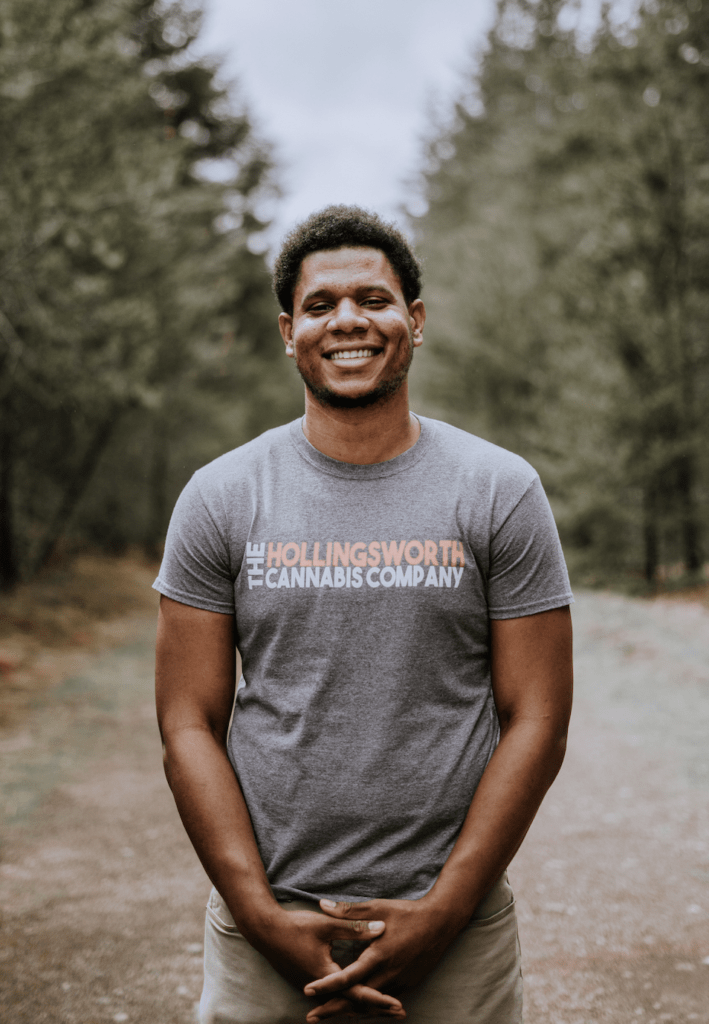
They started out growing over 60 strains, paring that down through trial and error (including losing thousands of plants to mold and mites) to about 15 strains that grow well in Western Washington’s cold, wet climate. “Growing and farming are different things,” recalled Joy, the company’s Chief Operating Officer, in an interview with MJ Brand Insights. “What grew well in a basement, where my brother started, is very different to what’s going to grow on the Olympic Peninsula.”
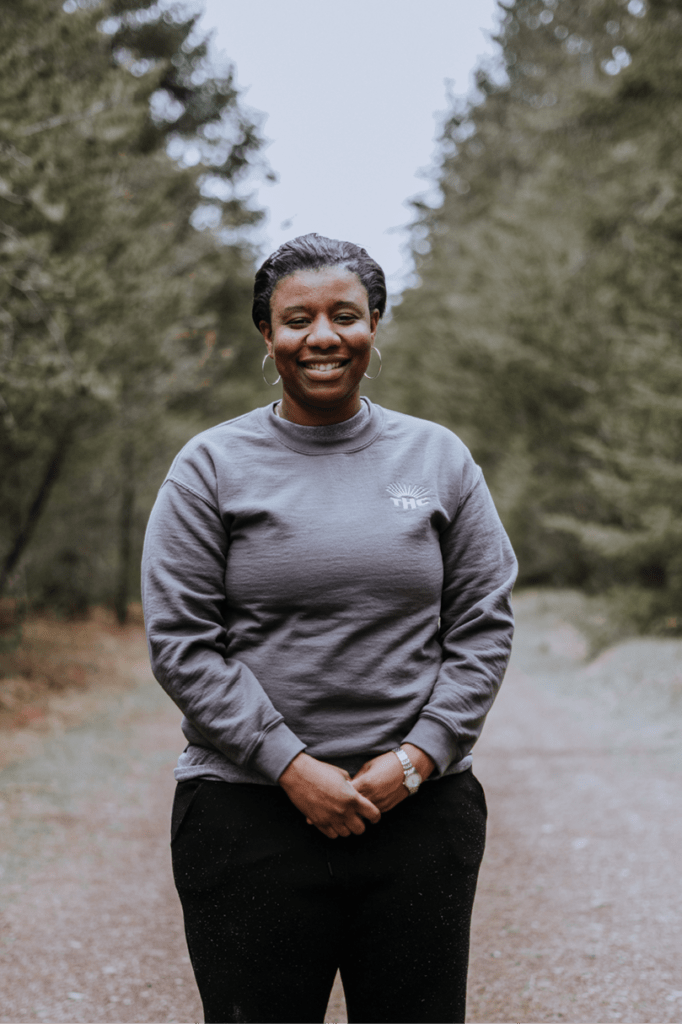
The siblings were fortunate enough to get around some of the initial challenges that face many BIPOC entrepreneurs, including access to capital. Their father invested $120,000 from his retirement savings. And for a long time, their operation was entirely a family affair. Both of their parents and an aunt helped with everything from planting to trimming to extracting THC, labeling jars, and rolling joints. For several years, they struggled to compete in the state’s crowded retail cannabis market. “It was really expensive to be in retail,” said Joy. Without a lot of personal connections, it was hard to get retailers’ attention, and shelf space.
However, in 2018 a glut in the market caused wholesale cannabis prices to plummet. A lot of growers went out of business. So in 2019, the Hollingsworths dropped their consumer lines to focus on providing wholesale flower and distillates to other brands. They also expanded into the hemp business, launching a line of CBD-infused salves and beauty products marketed direct-to-consumer across the country.
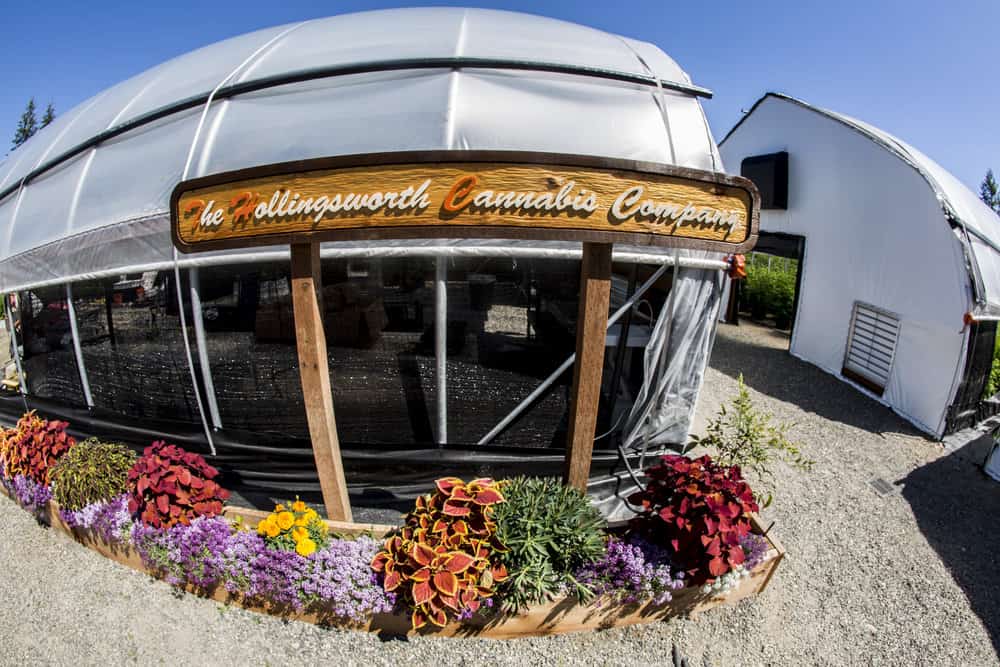
Then came 2020. It wasn’t the pandemic, per se, that impacted their business. Rather, it was the rise of the Black Lives Matter movement and the surge in awareness of racial inequity. “Looking through the lens of diversity, equity, and inclusion, and celebrating black business, a lot of people said ‘Hey, we want to support you guys,’” Joy said. “People were literally going into stores asking for black-owned weed.” With that opportunity staring them in the face, the Hollingsworths decided to reintroduce their brand to retail stores.
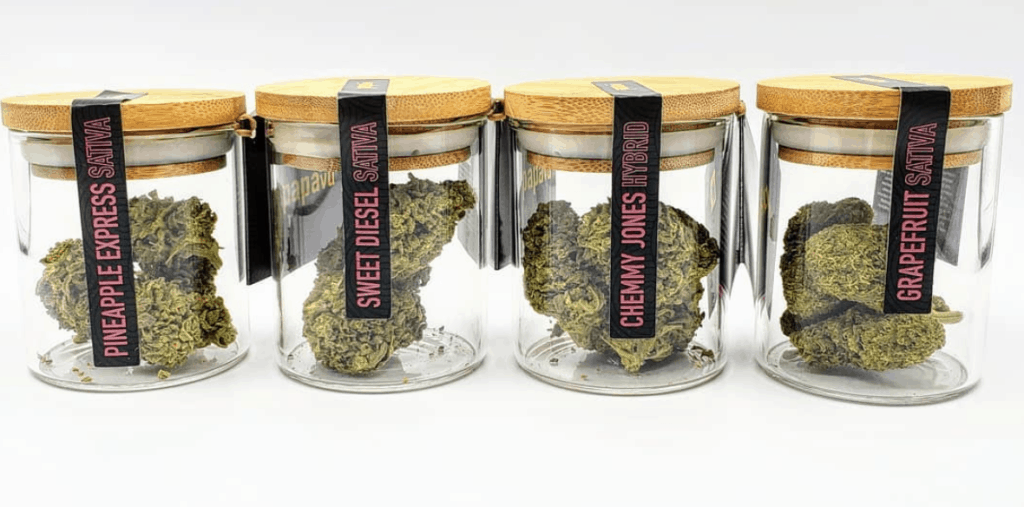
In February, THC Co. rolled out its wares again under two retail brands: the mid-range Hollingsworth Cannabis brand, and the premium brand PAPAVU. Products include flower and pre-rolls in a variety of sativa, indica and hybrid strains. As of this writing, THC Co.’s products are available at six retail stores in Seattle and two in Vancouver, Washington, with more locations coming soon.
Redirecting the spotlight to social equity
The Hollingsworths are not proud of being Washington State’s sole black-owned pot farm. That sad fact says more about Washington’s dismal record on social equity than it does about Joy and Raft’s business acumen. African Americans make up just four percent of the state’s population, but only one percent of its 1500 cannabis retailers. And out of nearly 1400 grow licenses in the state, THC Co. is the only one in the hands of black owners.
That dubious distinction has, however, earned the Hollingsworths a lot of media attention—including coverage in the New York Times, Associated Press, NPR, High Times, even a 2017 appearance on Anthony Bourdain’s Parts Unknown. And they have been careful not to squander that attention, using their platform to shine a light on the need for policies to promote social equity in the cannabis industry.
“What we want to do is to redirect the attention off of us and use our platform to highlight some of the disparities within the industry,” says Joy. “But also the social equity piece—to not only get more people in the industry, but also highlight the massive amount of tax dollars that are being generated from cannabis, and how those need to get redirected back into the communities that were most harmed by the War on Drugs.”
Raft Hollingsworth was recently named to the state’s new Social Equity in Cannabis Task Force, which was created by the legislature in 2020 to advise regulators on ways to promote minority ownership in the industry—including distributing 37 new retail cannabis licenses, as well as $1.1 million in grants and technical assistance to BIPOC entrepreneurs.
Joy lobbied for the bill that created the social equity task force, and has been active lately in efforts to improve and expand on the program. She would like to see eligibility expanded beyond licensees to include distributors, accountants, software engineers, designers and others who serve the cannabis industry.
But her eyes are set on a bigger prize: the $1 billion in tax revenue that Washington expects to collect from marijuana sales over the next two years. According to an analysis by Crosscut, most of that money is earmarked for healthcare, education, and law enforcement, while approximately one third goes into the state’s general fund.
“We want to see those tax dollars that are going to the general fund get redirected into black small businesses,” says Joy. “That could be any business, not just cannabis businesses.”
Other priorities she’d like to see funded include education, digital equity, food insecurity and home ownership.“Not affordable housing,” she underscores, “but home ownership. Because home ownership is what led people to be able to have wealth, generational wealth, and pass it down. We want to see black people own their own homes.”
As if her hands weren’t already full, Joy Hollingsworth just launched a weekly podcast focused on the business side of cannabis, with an emphasis on social equity. In the first episode, which streamed live on March 17, she interviewed her brother Raft about his entrepreneurial journey and advocacy for social justice.
For all of its ups and downs, Joy wouldn’t trade this ride for anything. “What I can say for the last seven years: It has been fun. It has been entertaining. It has been a lot of cries, a lot of tears. I have either quit or gotten fired every week since we started with our family. But the biggest thing that I’ve learned is I could not be happier to do something with the people I love the most… I’m super super fortunate.”


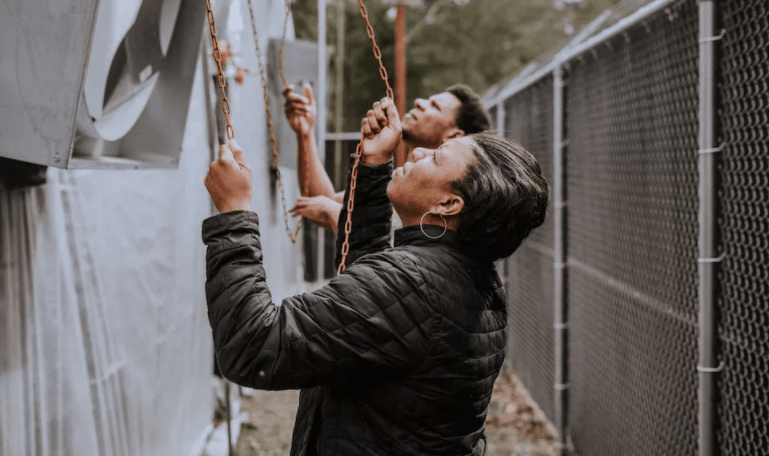


6 thoughts on “Joy Hollingsworth on why her company should NOT be Washington’s only black-owned pot farm, and what the state can do about it”
Pingback: Celebrate Juneteenth With These Black-Owned Cannabusinesses | Piece of Mind Cannabis
Pingback: 12 Black-owned cannabis companies to gift from this holiday season - TheGrio
Pingback: 12 Black-owned cannabis companies to gift from this holiday season – CSRA Black Business Guide
Pingback: 12 Black-owned cannabis companies to gift from this holiday season – The Bill Gay Show
Pingback: 12 Black-owned cannabis companies to gift from this holiday season – EWC Communication
Pingback: 8 Black-Owned Cannabis Dispensaries to Visit Around the U.S.